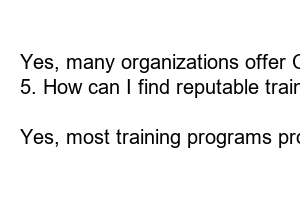아동학대 신고의무자 교육
Title: Child Abuse Reporter Training: Equipping Protectors for a Safer Future
Introduction:
Child abuse is a harrowing and widespread issue that demands our attention. As a community, it is crucial for us to equip ourselves with the necessary skills to recognize and report child abuse effectively. Child Abuse Reporter Training provides individuals with the knowledge and tools to identify, document, and report cases of child abuse promptly and confidentially. In this blog post, we will explore the significance of such training and the skills it imparts.
1. Understanding Child Abuse:
Child abuse encompasses various forms, including physical, emotional, and sexual abuse, as well as neglect. Training programs delve into these distinct categories to help participants recognize the signs and symptoms associated with each.
2. Reporting Obligations:
*Recognizing the duty to report*: Child Abuse Reporter Training emphasizes the moral and legal obligation to report suspected cases of child abuse. Participants learn about the legal framework surrounding child abuse reporting, ensuring they are aware of their responsibilities.
3. Identifying Warning Signs:
*Spotting the red flags*: The training ascertains how to observe behavioral changes, physical injuries, emotional distress, and other signs that may indicate potential child abuse. Such skills enable individuals to play an active role in identifying at-risk children and initiating necessary interventions.
4. Documenting Accurate Information:
*Putting it in black and white*: Documenting accurate and detailed information is a crucial aspect of reporting child abuse. Participants are trained to gather evidence, observe and record information effectively, ensuring that the pertinent details are preserved for authorities to pursue investigations.
5. Maintaining Confidentiality:
*Respecting privacy*: Child Abuse Reporter Training emphasizes the importance of maintaining confidentiality throughout the reporting process. Participants learn how to handle sensitive information securely, ensuring the safety and well-being of the child and family involved.
6. Collaborating with Authorities:
*Lending a helping hand*: The training equips individuals with the essential communication skills needed to collaborate with child protection agencies, law enforcement, and other authorities effectively. Participants learn how to convey information accurately and provide necessary support during investigations.
Summary:
Child Abuse Reporter Training is a crucial step towards safeguarding children and creating a safer society. By providing individuals with the necessary knowledge and skills, the training ensures that potential cases of child abuse can be identified and reported promptly. Understanding various forms of abuse, recognizing warning signs, and documenting accurate information are all pivotal aspects covered in the training. Furthermore, maintaining confidentiality and effectively collaborating with authorities are emphasized to ensure a comprehensive response to child abuse cases.
FAQs:
1. What is the duration of Child Abuse Reporter Training?
Child Abuse Reporter Training programs can vary in duration, ranging from one-day workshops to longer-term courses. The length depends on the depth of knowledge and practical skills being imparted.
2. Can anyone participate in the training?
Yes, anyone concerned about child abuse and willing to learn can participate in the training. It is especially beneficial for individuals working with children or in professions that interact with them regularly.
3. Is there an age limit to enroll in Child Abuse Reporter Training?
There is no specific age limit for participating in the training. However, it is recommended for individuals above the age of 18, as the subject matter can be sensitive and requires a certain level of maturity.
4. Are these training programs available online?
Yes, many organizations offer Child Abuse Reporter Training online, making it accessible to a wider audience. Online training provides flexibility and convenience for participants to complete the program at their own pace.
5. How can I find reputable training providers in my area?
You can search online for organizations that specialize in child protection and offer Child Abuse Reporter Training. Additionally, local government agencies and social service organizations may also provide information or recommendations.
6. Is certification provided upon completion of the training?
Yes, most training programs provide certification upon successful completion. The certification reinforces your commitment to child protection and can be a valuable asset in professional settings.

